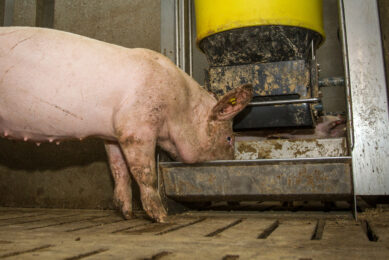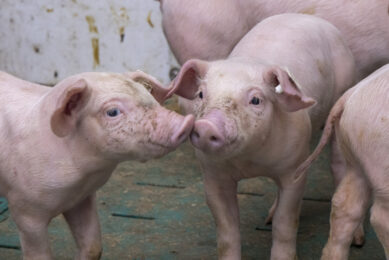Olymel closes major pig processing plant in Quebec

The Canadian company Olymel will close a major pork processing plant south of Quebec City by the end of 2023, laying off 994 workers. According to the company, labour shortages, the instability of export markets, and strong inflation were the primary reasons for closure. Olymel chose this particular plant because it is difficult to find workers in the region and because the equipment is outdated.
Olymel’s CEO Yanick Gervais stated that his company’s fresh pork operations have lost € 271 million in the last 2 years. Olymel has had to reduce pigs slaughtered by about 1.5 million per year. The company announced earlier this year it would also shut down 2 of its ‘further processing’ plants in Quebec.
Response from government and industry
The president of the Quebec farming group ‘Union des producteurs agricoles’ said the closure is very serious for the province’s pork producers, and asked for the Quebec government to closely examine the problems plaguing the industry. Quebec’s Agriculture Minister promised that work will be done to build the sustainability of the sector.
Rene Roy, Chair of the Canadian Pork Council, said in a news release that the issues behind the plant closure are affecting the national industry. He stated that “we need our trade agreements to work for us, we need our agricultural policies to work for us, and we need to work together as an industry to find long-term solutions.”
Roy thinks there is hope another domestic or foreign company will buy the plant. Regardless, we have work to do in export markets. “We know we need to diversify more. Tindustry has looked to China in recent years. This country has been paying very well, and we have lost some market share in Japan, which is a high-value, stable market for us. We have also seen the US gain market share into our domestic market. During Covid, we saw that the Canadian industry did not completely serve our domestic market well. So we have to make sure we serve it properly because then we have more stability. We need to learn our lessons.”
Inflation and the Chinese markets
On the inflation front, the price of groceries in Canada rose 9.7% in March 2023 compared to the same period last year. Regarding Canada’s pork export markets, China buys somewhat less Canadian pork now because it rebuilds its national pig herd after African Swine Fever decimated it, although the disease still causes issues. China also looks to competitors, mainly the US and Brazil.











